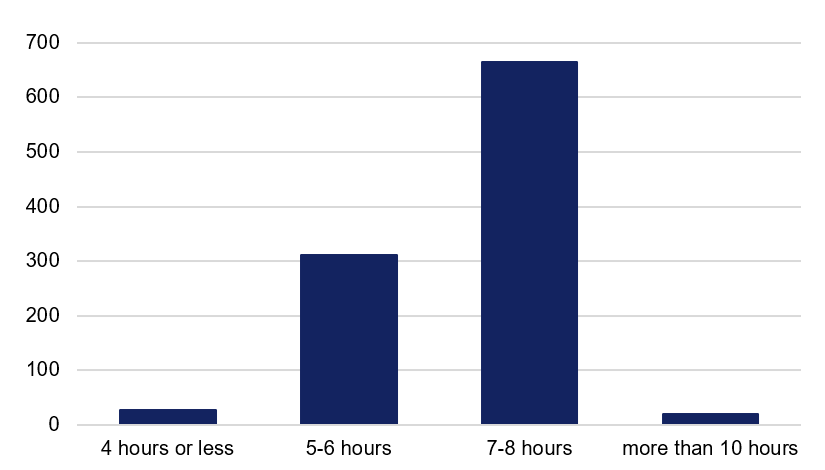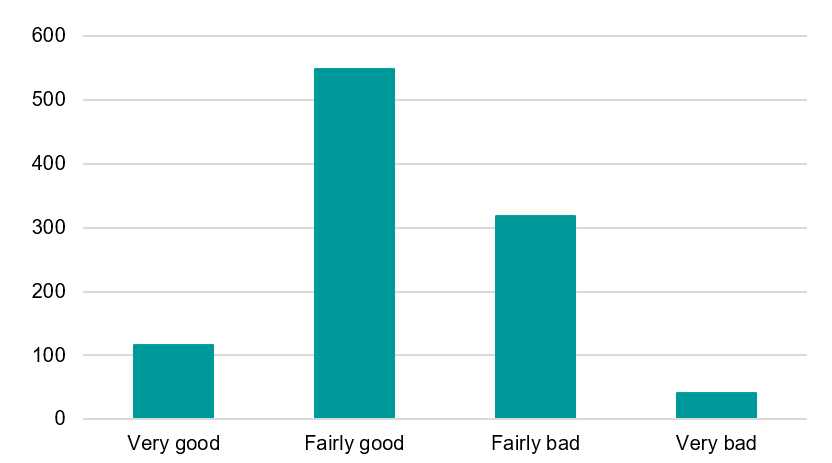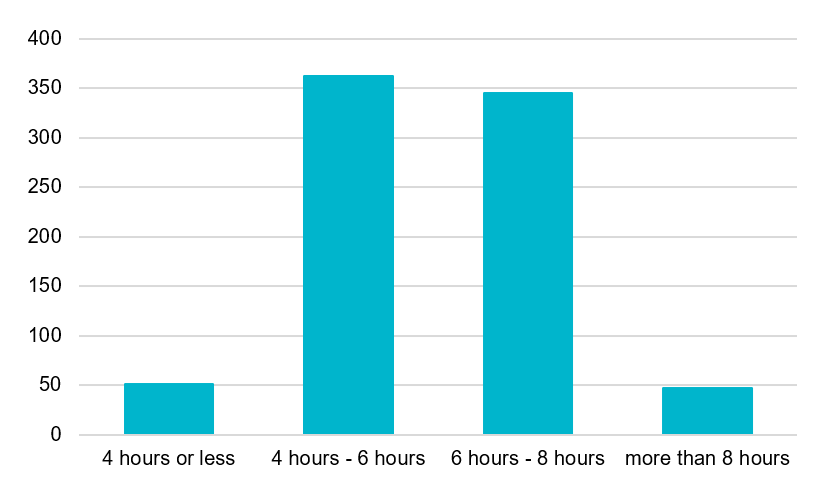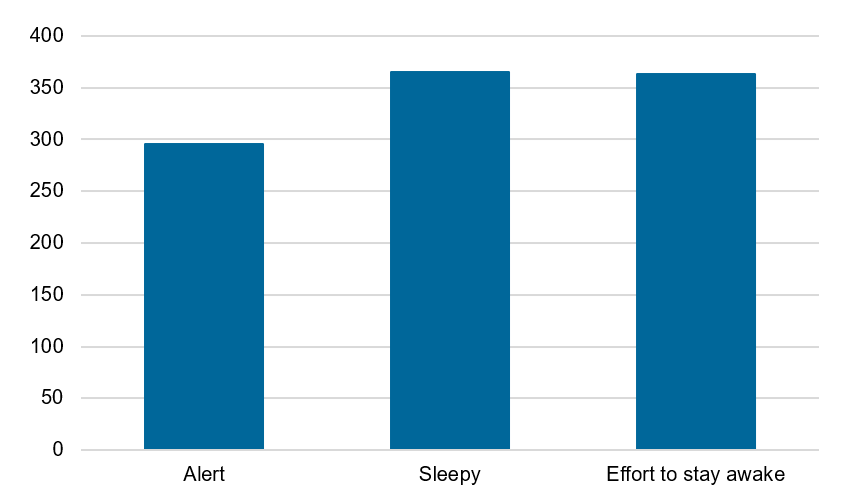Hours of sleep
Respondents were asked how many hours sleep they normally got per night when at home. 67% (684) of respondents stated they got 7 to 8 hours or more sleep per night when at home. 33% (340) of respondents reported getting less than 6 hours sleep per night. (Figure 9).

Respondents were asked to rate the quality of their sleep over the past month. In line with the amount of sleep respondents quoted above in Figure 9, 65% (665) stated that their sleep quality during the past month had been good or very good and 35% (359) of respondents stated that their sleep quality had been bad or very bad.
Sleep quality
A deeper analysis will be able to demonstrate whether those respondents who stated that they were getting above 7 hours sleep per night were the same respondents who stated that their sleep quality was good to very good. However, the findings reported here indicate that seafarers know how many hours sleep constitutes good quality sleep, and whether their sleep is of good or bad quality. These findings also indicate that 35% (359) of respondents are turning up to their vessels already fatigued (Figures 9 and 10).

Respondents were asked to state how many hours of sleep they normally got in a 24-hour period when at sea. 38% (392) stated that they normally got 6 hours sleep or more in a 24-hour period out at sea, however, 40% (414) stated that they got less than 6 hours sleep in a 24-hour period at sea. When looking at this in combination with how much sleep people need or get at home, most respondent’s sleep quantity is reduced while at sea. Research shows that fatigue, resulting from insufficient sleep is associated with a significant degree of performance impairment.

Sleepiness at sea
Respondents were asked to rate their level of sleepiness at the end of their last trip out to sea. To capture their responses, the survey used the Karolinska Sleepiness Scale (KSS), a widely used subjective level of sleepiness scale that has very good reliability and validity in the sleep science literature.
Respondents reported an even split between alertness and sleepiness at the end of their last trip out to sea in this survey. 50% (507) of respondents indicated that they felt between Level 1 (extremely alert) and Level 5 (neither alert nor sleepy) on the KSS, and 50% (517) of respondents indicated that they felt between Level 6 (some signs of sleepiness) and Level 9 (very sleepy, great effort to keep awake, fighting sleep) (see Table 4 and Figure 12).
Karolinska Sleepiness Scale | Frequency | Percentage |
1 – Extremely alert | 41 | 4% |
2 – Very alert | 93 | 9% |
3 – Alert | 162 | 16% |
4 – Rather alert | 94 | 9% |
5 – Neither alert nor sleepy | 117 | 11% |
6 – Some signs of sleepiness | 154 | 15% |
7 – Sleepy, but no effort to keep awake | 157 | 15% |
8 – Sleepy, but some effort to stay awake | 165 | 16% |
9 – Very sleepy, great effort to keep awake, fighting sleep | 41 | 4% |
Total | 1024 |
|
